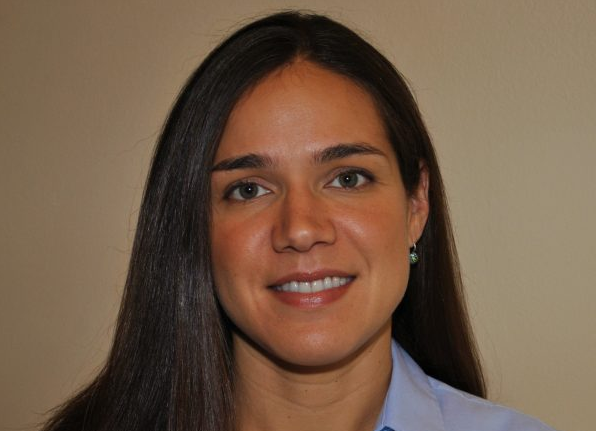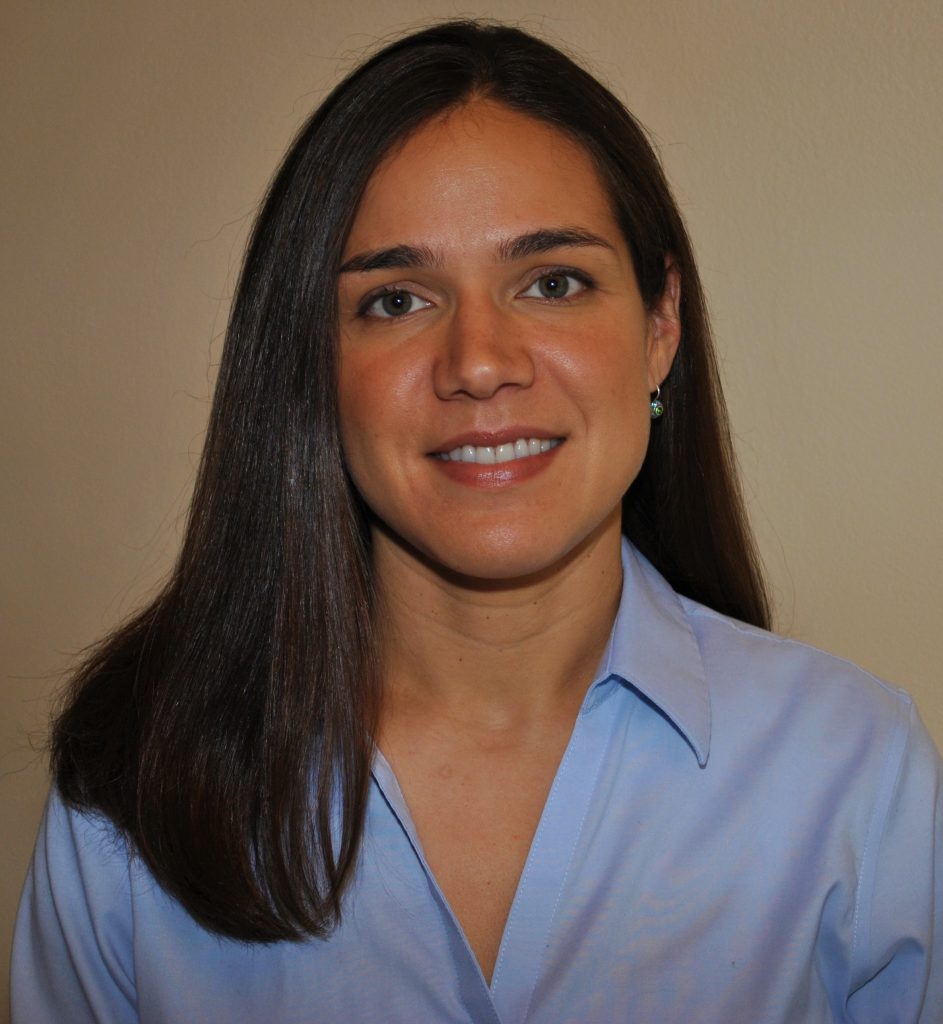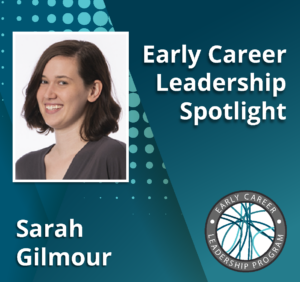New Faculty Profiles showcase GSA members who are establishing their first independent labs. If you’d like to be considered for a profile, please complete this form on the GSA website.
Amanda Larracuente
Assistant Professor (since 2015)
Department of Biology
University of Rochester
Lab website
Research program:
Genomes are frequently in conflict with selfish DNAs – genetic elements that can spread in genomes and populations without offering any benefit, and many times even causing harm, to their hosts. Our lab integrates genomic, cytological and molecular approaches to study the impact of selfish DNA on genome evolution. Our primary interests are in the evolutionary and functional genomics of satellite DNAs (repetitive DNA typically found at centromeres and telomeres) and meiotic drive.
“I am in awe of what we can do with new genomic technologies. For example, we are using single molecule real time sequencing to assemble large contiguous blocks of satellite DNA in Drosophila genomes. This gives us a platform to study satellite DNA functional and evolutionary genomics in truly unprecedented detail. Being a part of this burgeoning field is exciting!” -Amanda Larracuente on her favorite part about her work
How has being a member of GSA helped you advance in your career? Why do you think societies like GSA are important?
Being a GSA member has been important for my career development, especially through providing the opportunity to meet important people in my field and present my research at fly meetings. I was fortunate to be a recipient of the DeLill Nasser Award for Professional Development in Genetics as a graduate student. Societies like the GSA are important for career development, especially for young scientists. They provide the opportunity to be an active member of your community and connect with scientists within your discipline.
If your position involves teaching, which subjects or courses are you expecting to teach?
I am designing a new course called “Applied Genomics” aimed toward senior undergraduates in Computational Biology. This course is designed to teach students how the fast-moving field of genomics is applied to address important problems in genetics, evolution and human health and demography. Students will receive hands-on training in genomic methods, where they will learn to analyze next generation sequencing (NGS) and other high throughput assays to test hypotheses.
Previous training experiences:
Postdoctoral Fellow, University of Rochester, 2011-2014
Postdoctoral Associate, Whitehead Institute for Biomedical Research, 2009-2011
Ph.D. Genetics, Cornell University, 2003-2010
B.S. Biology, Canisius College 1999-2003
What do you like to do when you’re not at work?
When not at work, I enjoy spending time with my family, birding and running.














